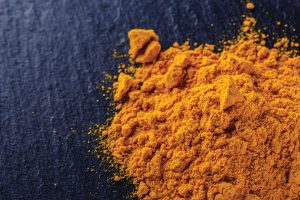To be, or not to be? That is the question, at least according to Hamlet. Another query amongst women of a certain age might be: to use HRT (hormone replacement therapy), or not use HRT? That is certainly a big question, with strong advocates on both sides of the equation.
I started out working in mainstream medicine and was taught that women who wanted to age well and feel their best use HRT once menopause symptoms commence. Drugs were one size fits all, sometimes synthetic, and could have terrible side effects, but that didn’t stop millions of women from using them. There was a book published in 1966 called Feminine Forever that called out menopause as a disease caused by hormone deficiency and that healthy aging was not possible without replacing these hormones. Magazine ads associated HRT with staying young and beautiful, and making one’s husband happy. Yikes!
Next came the rejection of HRT. Menopause was a natural and healthy transition, and research on HRT indicated it was implicated in strokes and heart disease. The theory was that healthy women don’t really struggle with menopausal concerns. Eat right, exercise and take some herbs that cool the hot flashes. All will be well. Women who were not feeling well were made to feel abnormal or like they weren’t trying hard enough.
Now we are looking again at HRT, because there are aspects of using hormones that can be extremely useful and powerful tools for helping women live long and happy lives. However, doctors have learned that one size fits all is never a good idea. Specialists have arisen that evaluate each woman individually and craft a prescription that meets her exact needs, usually utilizing various forms of estrogen, testosterone (yes, women need testosterone, too!) and progesterone. They call this bioidentical hormone replacement therapy (BHRT). Hormones are powerful messengers that trigger dramatic responses in a woman’s body. Think about what you looked and acted like in the fourth grade. Now think about how you looked and acted in the eighth grade. You can thank hormones for that transition.
It makes sense to look at all options when tackling changes with menopause, and if BHRT makes sense to a woman and her doctor, there is some research that it can be quite useful. If you are considering using BHRT, find a practitioner that listens to your concerns and has expertise in this area. Also, I greatly prefer delivering BHRT in cream form on skin (topically), as that appears to be much healthier for long-term use compared to oral ingestion.
It may be that you are not interested in using hormonal therapies, and that is equally valid.
Regardless, most women need some kind of health support during the menopausal transition, which can last 10 to 15 years. Some women have a few hot flashes and interrupted sleep, while others may experience fatigue, loss of sexual interest, mood changes and chronic pain.
There are proven dietary supplements that can make a difference in healthy aging, including menopause in particular. They can be used alone or in conjunction with hormonal therapies, though it is always a good idea to share all supplements used with your health care practitioner.
Curcumin
With the hormonal shifts that happen around menopause, risk for certain health issues increases, including both heart disease and breast cancer. It is important to stay vigilant and proactive with diet and exercise, which is especially important after the age of 40. Curcumin can be a valuable tool to help ameliorate some of these risks. In an animal model, curcumin has been shown to delay the onset of progestin (hormone)-induced breast cancer. Curcumin also inhibited a compound that helps the formation of new blood vessels, called vascular endothelial growth factor (VEGF). New blood vessels are critical to the survival and growth of any cancer.
As for heart health, a study involving 32 postmenopausal women, curcumin and an exercise regimen were evaluated for their effects on heart and blood vessel function. After eight weeks, both groups experienced significant improvements in flow-mediated dilation (FMD). FMD is a useful tool for helping to assess artery health and cardiovascular disease risk. I am impressed that both groups improved significantly, and I ask myself how much more powerful the benefit might have been combining both curcumin and exercise?
Curcumin may also help to offset some of the mood changes seen with menopause, such as depression. One human study demonstrated that curcumin enhanced with turmeric essential oil (BCM-95) had similar efficacy to the prescription medication fluoxetine (one brand name is Prozac). Participants were given 1,000 mg of curcumin per day, fluoxetine 20 mg per day, or a combination. All groups responded well to the treatments during the six-week trial period. The curcumin and the fluoxetine groups improved about the same amount, though the curcumin group had fewer side effects. The combination group had slightly better results.
Diindolylmethane (DIM)
Diindolylmethane is certainly a mouthful. This compound’s precursors are found in cruciferous vegetables like cabbage and broccoli. However, you’d have to eat 2 lbs. of raw broccoli to get the clinically studied amount of DIM you need for its hormone balancing benefits. DIM doesn’t increase or decrease the amount of estrogen in your body; it helps keep estrogen it in its safest form. Estrogen metabolized via the healthiest pathways can provide a lot of health benefits, including the prevention of hormonally related cancer, difficult hormonal transitions, menstrual migraines and may be useful with uterine fibroids and endometriosis as well.
There has been research on DIM and breast cancer. Women with known breast cancer risk factor BRCA1 mutations were supplemented with a specially formulated diindolylmethane with enhanced bioavailability (BR-DIM). More than 76 percent of the participants had an increase in the BRCA1 levels in the study period of four to six weeks.
In a study of postmenopausal women aged 50-70 years old with a history of early-stage breast cancer, DIM was shown to help guide estrogen elimination via protective pathways. When estrogen reaches the end of its life cycle, it must be converted into compounds that can be excreted, called metabolites. E1 and E2 can go through pathways that create protective effects or be pushed through pro-carcinogenic pathways. Women supplemented with 108 mg per day of DIM for 30 days demonstrated significant increases in the healthy estrogen pathway 2-hydroxyestrone.
Black Cohosh
If you asked women about one herb that is useful in menopause, I bet many would mention black cohosh, a plant native to North America. A three-month clinical study on black cohosh (Cimicifuga racemose) in more than 400 women with menopausal symptoms found that the participants experienced a significant reduction in symptom severity according to the Kupperman Menopause Index (KMI). The KMI measures symptoms such as hot flashes, night sweats, insomnia, nervousness/anxiety, headaches, arthritic pain and several others. There was a 13 mg group (high dose) and 6.5 mg group (low dose). More than 84 percent of the women in the 13 mg group experienced improvements in their symptoms.
In a separate study, 180 women were given black cohosh or placebo for 12 weeks. At the beginning of the study, the 13 mg black cohosh group, the 6.5 mg black cohosh group and placebo group all had KMI scores of 27 to 28. After 12 weeks, the 13 mg black cohosh group experienced a decrease of 17 score points on the KMI and the 6.5 mg group had an 8.47 point decrease. That means the high dose group had about a 60 percent decrease in symptoms. Some of the symptoms that experienced the largest decreases included hot flushes, sweating, insomnia and irritability.
Red Ginseng
Too often, I hear the mistaken belief that ginseng is only for men’s health. Nothing could be further from the truth. Ginseng is perhaps the most powerful adaptogen on the planet and addresses many of the issues facing women undergoing hormonal transitions.
Two clinical studies on red ginseng (Panax ginseng) have looked at its effects on sexual function. Looking at the data from both studies, the ginseng demonstrated favorable effects on the sexual function scores, including improving arousal and decreasing pain during intercourse. These two studies lasted eight to 16 weeks, so give it some time. A separate study also demonstrated that ginseng could help reduce the total hot flash score. Red ginseng has been shown in many studies to improve energy and mood, two other frequent concerns in women in menopause.
Make sure your red ginseng is Panax ginseng. There is an American ginseng plant called Panax quinquefolius, which is related to Panax ginseng, but they are not the same plant. Siberian ginseng (eleuthro) is not related at all. Unfortunately, a lot of pesticides are used in ginseng cultivation, so it is important to look at ginseng that is pesticide-free and grown in clean conditions.
Rhodiola
Because of its adaptogenic properties, rhodiola (Rhodiola rosea) can be a great option for many issues associated with hormonal changes, including perimenopause and menopause. Rhodiola can help improve fatigue and depression and protect the heart. A clinical study showed that 400 mg per day of rhodiola could significantly improve energy levels. Improvements were noted after just one week and continued to show additional benefit through the eight-week study period. Participants on average experienced a 41.8 percent reduction in stress and 38.8 percent reduction in fatigue.
There Are Answers
Regardless of your thoughts on menopause, whether you breeze through with nary a symptom, or the change in hormones makes you miserable, there are answers to be had that will help you feel better. BHRT can be very useful in the right circumstances, and some researchers are exploring if indeed this type of treatment can improve longevity. Herbal interventions have a long history of use as well as modern research that proves they can make a difference. Using either, or both, is always an option. VR
References:
Akazawa N, et al. Curcumin ingestion and exercise training improve vascular endothelial function in postmenopausal women. Nutr Res. 2012 Oct;32(10):795-799.
Blondon M, et al. Differential associations of oral estradiol and conjugated equine estrogen with hemostatic biomarkers. J Thromb Haemost. 2014 Jun;12(6):879-886.
Bolour S & Braunstein G. Testosterone therapy in women: a review. Int J Impot Res. 2005 Sep-Oct;17(5):399-408.
Carroll CEC, et al. Curcumin delays development of MPA-accelerated DMBA-induced mammary tumors. Menopause. 2010 Jan;17(1):178-184.
Cintron D, et al. Effects of oral versus transdermal menopausal hormone treatments on self-reported sleep domains and their association with vasomotor symptoms in recently menopausal women enrolled in the Kronos Early Estrogen Prevention Study (KEEPS). Menopause. 2018 Feb;24(2):145-153.
Dalessandri KM, Firestone GL, Fitch MD, Bradlow HL, Bjeldanes LF. Pilot study: effect of 3,3’-diindolylmethane supplements on urinary hormone metabolites in postmenopausal women with a history of early-stage breast cancer. Nutr Cancer. 2004;50(2):161-167.
Davis SR, McCloud P, Strauss BJ, Burger H. Testosterone enhances estradiol’s effects on postmenopausal bone density and sexuality. Maturitas. 2008 Sep-Oct;61(1-2):17-26.
Drewe J, Zimmerman C, Zahner C. The effect of a Cimicifuga racemosa extracts Ze 450 in the treatment of climacteric complaints – an observational study. Phytomedicine. 2013 Jun;20(8-9):659-666.
Files JA, Ko MG, Pruthi S. Bioidentical Hormone Therapy. Mayo Clinic Proc. 2011 Jul;86(7):673-680.
Gurney EP, Nachtigall MJ, Nachtigall LE, Naftolin F. The Women’s Health Initiative trial and related studies: 10 years later: a clnician’s review. J Steroid Biochem mol Biol. 2014 Jul;142:4-11.
Holtorf K. The bioidentical hormone debate: are bioidentical hormones (estradiol, estriol, and progesterone) safer or more efficacious than commonly used synthetic versions in hormone replacement therapy? Postgrad Med. 2009 Jan;121(1):73-85.
Kim MS, et al. Ginseng for managing menopause symptoms: a systematic review of randomized clinical trials. J Ginseng Res. 2013 Mar;37(1):30-36.
Kotsopoulos J. et al. BRCA1 mRNA levels following a 4-6-week intervention with oral 3,3’-diindolylmethane. Br J Cancer. 2014;111(7):1269-1274.
Lee HW, Choi J, Lee YJ, Kil KJ, Lee MS. Ginseng for managing menopausal woman’s health: A systematic review of double-blind, randomized, placebo-controlled trials. Medicine (Baltimore). 2016 Sep;95(38):e4914.
Lekomtseva Y, Zhukova I, Wacker A. Rhodiola rosea in Subjects with Prolonged or Chronic Fatigue Symptoms: Results of an Open-Label Clinical Trial. Complement Med Res. 2017;24(1):46-52.
Manson JE, et al. Menopausal hormone therapy and health outcomes during the intervention and extended poststopping phases of the Women’s Health Initiative randomized trials. JAMA. 2013 Oct 2;310(13):1353-1368.
Mao JJ, et al. Rhodiola rosea versus sertraline for major depressive disorder: A randomized placebo-controlled trial. Phytomedicine. 2015 Mar 15;22(3):394-399.
Miguel J, Ramirez-Bosca A, Ramirez-Bosca JV, Alperi JD. Menopause: a review on the role of oxygen stress and favorable effects of dietary antioxidants. Arch Gerontol Geriatr. 2006 May-Jun;42(3):289-306.
Panossian A, Wikman G, Sarris J. Rosenroot (Rhodiola rosea): traditional use, chemical composition, pharmacology and clinical efficacy. Phytomedicine. 2010 Jun;17(7):481-493.
Salpeter SR, Walsh JM, Greyber E, Ormiston TM, Salpeter EE. Mortality associated with hormone replacement therapy in younger and older women: a meta-analysis. J Gen Intern Med. 2004 Jul;19(7):791-804.
Sanmukhani J, Satodia V, Trivedi J, Patel T, Tiwari D, Panchal B, Goel A, Tripathi CB. Efficacy and safety of curcumin in major depressive disorder: a randomized controlled trial. Phytother Res. 2013;28(4):579-85.
Schellenberg R, et al. Dose-Dependent Effects of the Cimicifuga racemose Extract Ze 450 in the Treamtent of Climacteric Complaints: A Randomized, Placebo-Controlled Study. Evid Based Complement Alternat Med. 2012;2012:260301.
Smith NL, et al. Lower risk of cardiovascular events in postmenopausal women taking oral estradiol compared with oral conjugated equine estrogens. JAMA Intern Med. 2014 Jan;174(1):25-31.
The North American Menopause Society. The 2017 hormone therapy position statement of The North American Menopause Society. Menopause. 2017 Jul;24(7):728-753.
Whayne TF Jr & Mukherjee D. Women, the menopause, hormone replacement therapy and coronary heart disease. Curr Opin Cardiol. 2015 Jul;30(4):432-438.
Cheryl Myers is an integrative health nurse, author, and an expert on natural medicine. She is a nationally recognized speaker who has been interviewed by the New York Times, Wall Street Journal and Prevention magazine. Her many articles have been published in such diverse journals as Aesthetic Surgery Journal and Nutrition in Complementary Care, and her research on botanicals has been presented at the American College of Obstetrics and Gynecology and the North American Menopause Society. Myers is the head of scientific affairs and education for EuroPharma, Inc.





![[Extra! Extra!] Researchers Find Link Between NAD+ and Impaired Women’s Fertility](https://vitaminretailer.com/wp-content/uploads/2024/02/Womens-Health-300x194.jpg)






